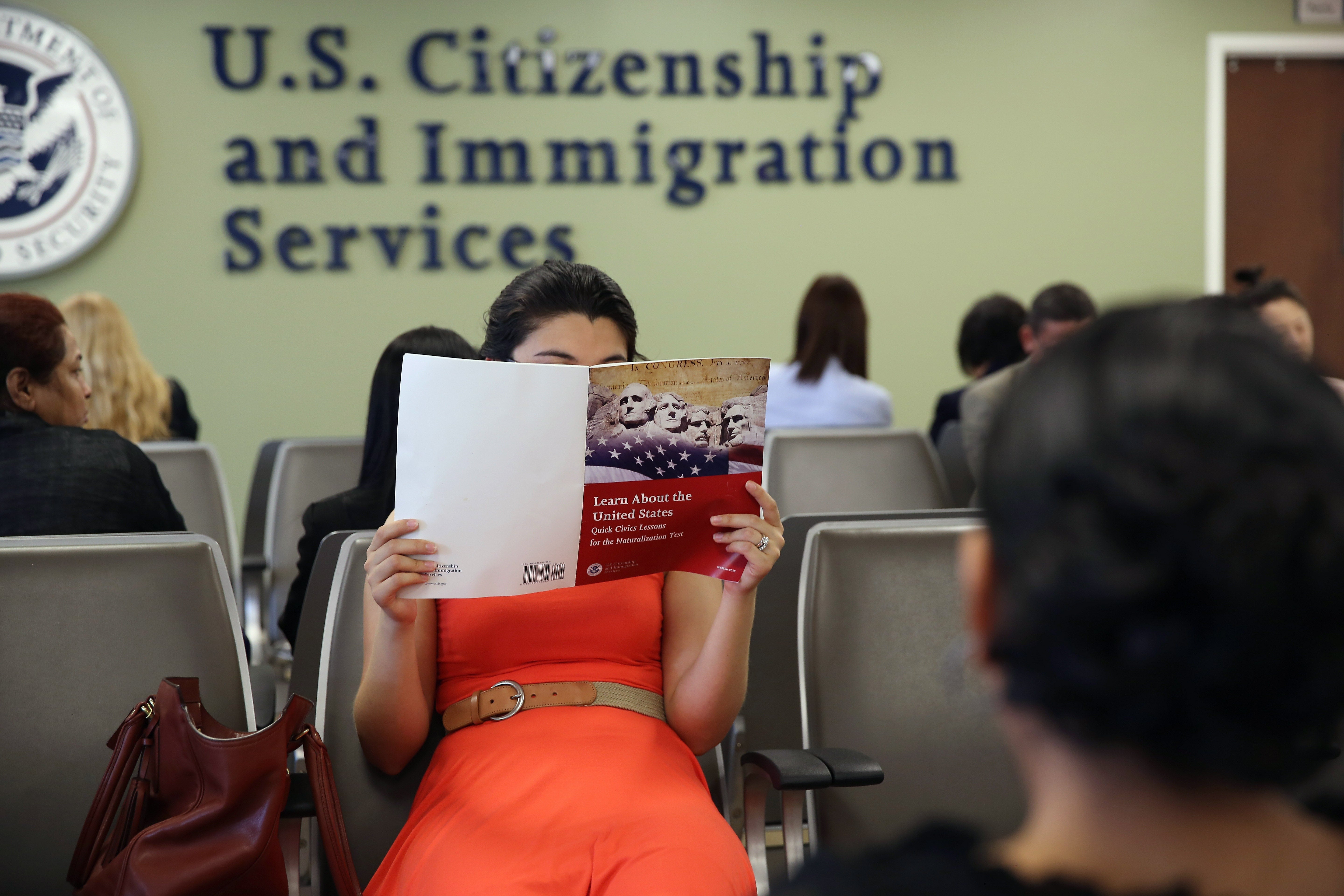The Trump administration is taking steps to expand the “good moral character” test for U.S. citizenship.
U.S. Citizenship and Immigration Services has announced that officers will be told to give more than a “cursory mechanical review focused on the absence of wrongdoing.” They will instead be ordered to organize “a holistic assessment of an alien's behavior, adherence to societal norms, and positive contributions that affirmatively demonstrate good moral character.”
The agency stated in a Friday memo that current rules will remain in place, meaning that citizenship will not be awarded to people who have taken part in serious offenses such as murder and other violent crimes. The memo also summarized new criteria for becoming a U.S. citizen.
“U.S. citizenship is the gold standard of citizenship — it should only be offered to the world’s best of the best,” a spokesperson for the agency, Matthew Tragesser, told The Hill.
President Donald Trump has made cracking down on immigration a top priority in his second term, starting what could be the most significant domestic deportation effort in the history of the country. He has also threatened to remove the citizenship of some who have already been naturalized.
USCIS revealed in April that it would review immigrants’ social media feeds for antisemitism and use posts as possible reasons for rejecting applications for visas and green cards.
What is good moral character?
According to the new policy, immigration officers must take into account any evidence of moral character, such as an applicant’s community involvement and educational level, in addition to possible negative information, including repeated DUI convictions or actions that “while technically lawful, may be inconsistent with civic responsibility within the community, such as reckless or habitual traffic infractions, or harassment or aggressive solicitation.”
Officers will also take into account any evidence of reformed characters, including paying back taxes or adhering to probation conditions.
USCIS said in a Tuesday press release that it would be screening “for anti-American activity” when vetting immigrant benefits requests.
“America’s benefits should not be given to those who despise the country and promote anti-American ideologies. U.S. Citizenship and Immigration Services is committed to implementing policies and procedures that root out anti-Americanism and supporting the enforcement of rigorous screening and vetting measures to the fullest extent possible,” Tragesser said in a statement.
What has changed?
Experts note that the new policy should be viewed through the broader prism of the Trump administration’s efforts to restrict legal immigration.
Former Biden administration official Doug Rand told CBS News that the Trump administration is “trying to increase the grounds for denial of U.S. citizenship by kind of torturing the definition of good moral character to encompass extremely harmless behavior.”
An associate professor of sociology at Brigham Young University, Jane Lopez, told The Washington Post that the new order “is not necessarily a break from past practice.” However, she added that it noted the ability of USCIS officers to “impose their subjective interpretations of this fuzzy concept in their evaluations of naturalization applicants.”

She added that all applications for naturalization, permanent residency, and various kinds of visas will be evaluated by one or more USCIS officers, and they already have the ability to “deny that application for a multitude of reasons.”
While having “good moral character” has been a requirement to become a U.S. citizen since the 1790 Naturalization Act, Lopez noted that citizenship applicants now have to prove that they have “positive attributes” instead of just proving that they haven’t been convicted of any crimes or been a part of other types of wrongdoing.
The new USCIS memo states that “family caregiving, responsibility, and ties in the United States” are examples that can be considered as positive attributes.
Tragesser told The Post that officers will take into account applicants’ contributions to American society, such as “community involvement, achievements, and financial responsibility, rather than the absence of their misconduct.”
An immigration law professor at the University of California at Davis, Gabriel Chin, told the paper that the most recent guidance is “so loose and discretionary that it is obviously susceptible to arbitrary enforcement.”
“Many birthright U.S. citizens do not have sufficient educational or economic achievements that would entitle them to a visa to immigrate to the United States,” said Chin. “If they had not been born here, they would not make the cut.”
Who will it impact?
Lopez argued that the new policy could “make it harder for noncitizens to obtain legal belonging in the United States” because officers have to “evaluate something they cannot consistently describe or define.”
The guidance also argues for increased scrutiny of actions that may disqualify an applicant for aggravated felonies, in addition to other behaviors, such as illegal gambling or drug violations.
The memo also states that other disqualifying actions include lawful behaviors, but which are "inconsistent with civic responsibility within the community,” such as frequent traffic violations or solicitation.







